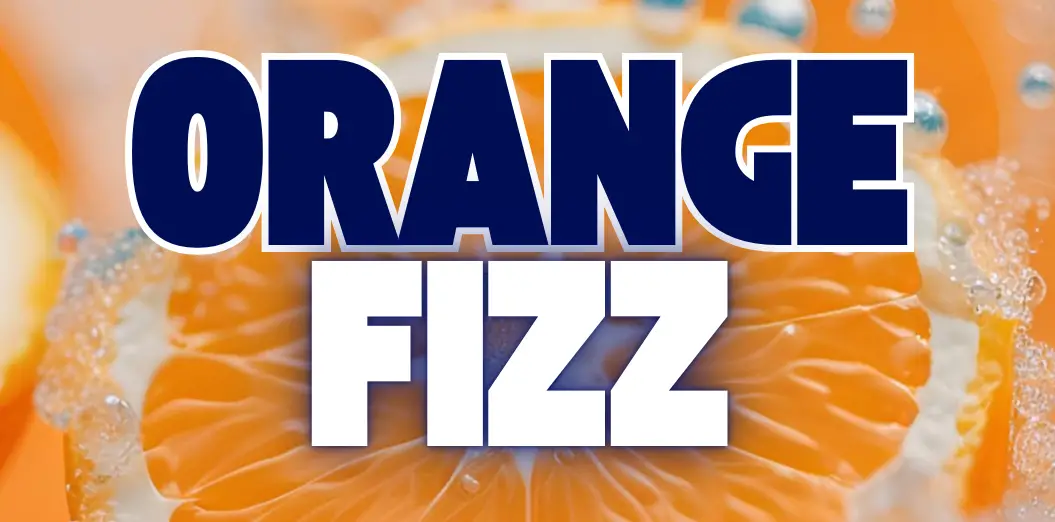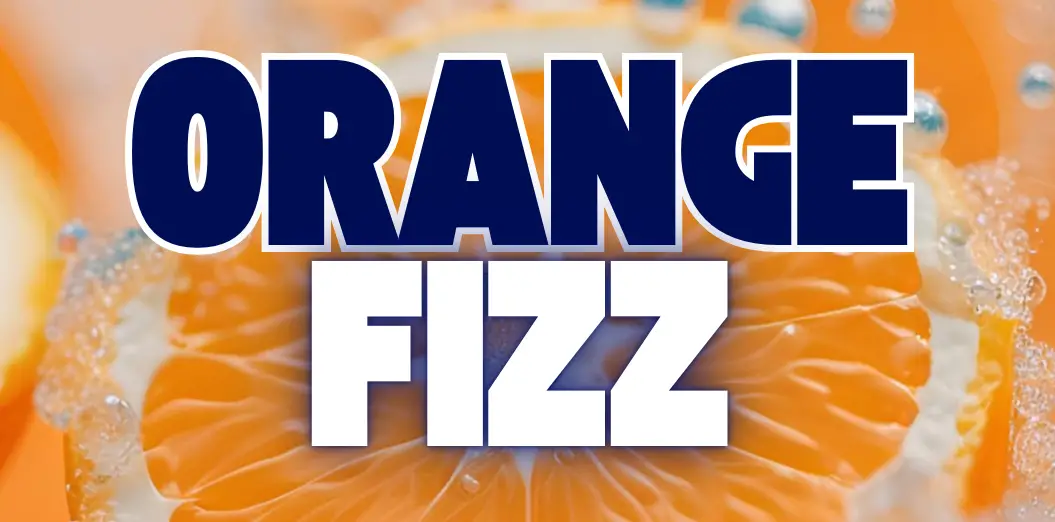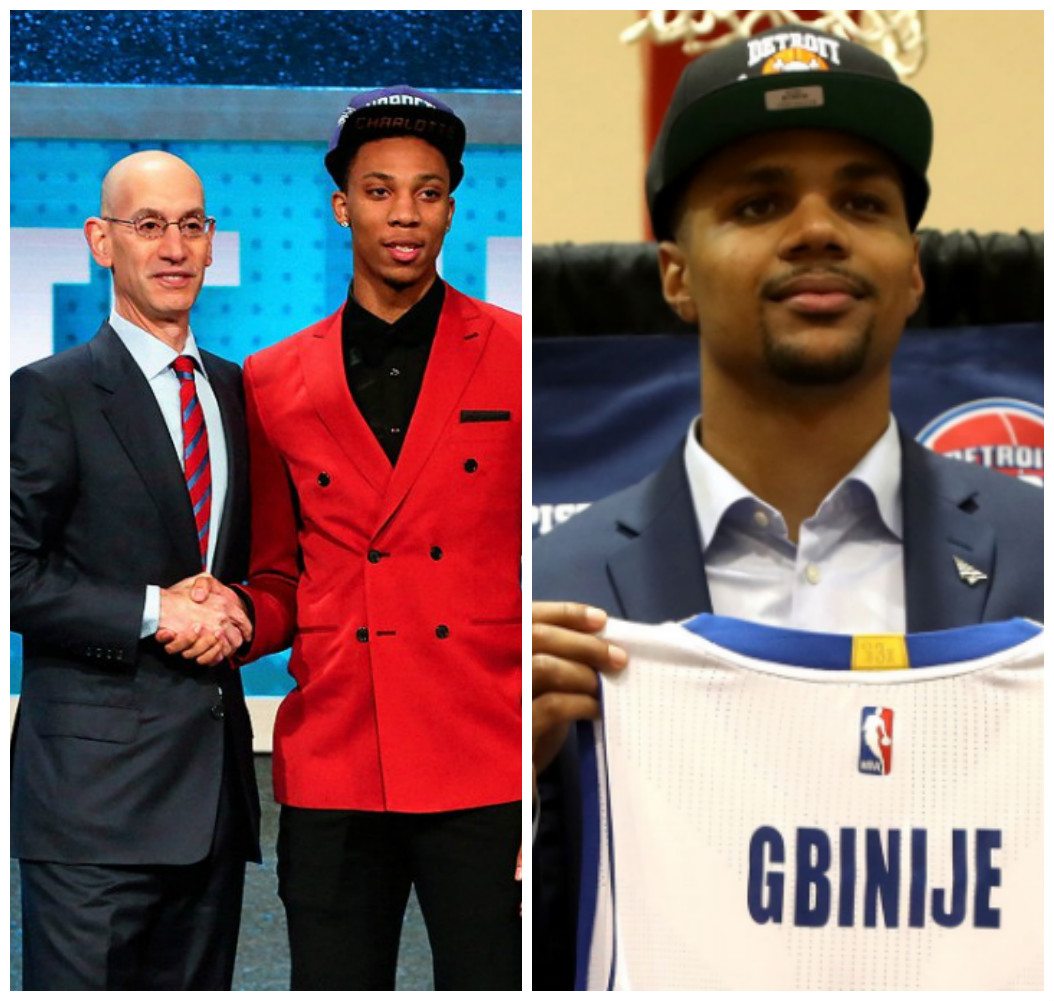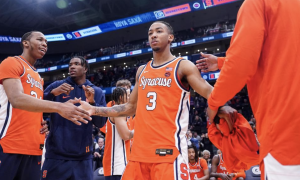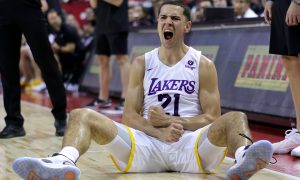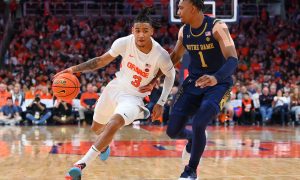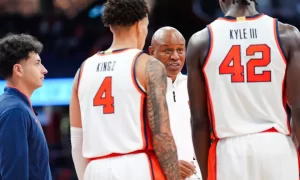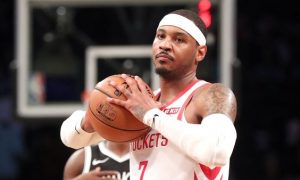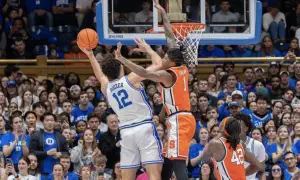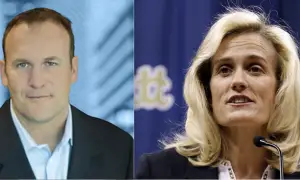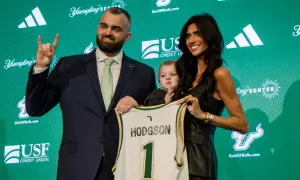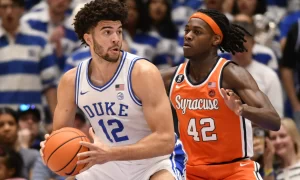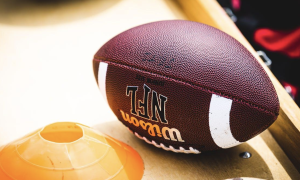It took a little bit longer than they (or anyone else) expected, but a pair of former Syracuse guards heard their names called during Thursday’s NBA Draft.
Malachi Richardson
The Hornets scooped up Richardson at No. 22, but after a draft-day trade, the pick belonged to Sacramento. It’s easy to say that the 20-year-old’s career is now over before it started, because the Kings are arguably the most toxic organization in all of sports, and have not successfully developed a draftee since 2011, when they took 5-foot-9 Isaiah Thomas with the last pick in the draft. Here’s a list of Sacramento’s first-round picks since striking gold with Thomas (who is no longer with the team): Bismack Biyombo (no. 7 in 2011; eventually became Jimmer Fredette after multiple trades), Thomas Robinson (no. 5 in 2012), Ben McLemore (no. 7 in 2013), Nik Stauskas (no. 8 in 2014), Willie Cauley-Stein (no. 6 in 2015). That’s hideous.
One year before the Kings drafted Thomas, though, they selected DeMarcus Cousins fifth overall. Six seasons later, the Kentucky product, perhaps the league’s last true dominant back-to-the-basket big man, is Sacramento’s franchise player. The 25-year-old scores at will in the post, possesses a nice face-up game, passes extremely well for his size, and is a solid all-around defensive big man — when focused. That’s the issue with Cousins: he simply cannot get along with the organization, and has been involved in trade rumors for at least three years.
But, as the roster is currently constructed, Richardson should fit perfectly with the Kings. They severely lack perimeter scoring, and the Syracuse alum will provide it in bunches at times. When he’s not in a groove, however, Richardson tends to disappear, and he can’t afford to do that in Sacramento, where he should immediately be the team’s no. 3 option on offense, after Cousins and Rudy Gay.
Alongside Gay, Richardson could help form a lockdown duo of wing defenders. Between the two of them, the swingmen own 14 feet and three inches of wingspan, plus solid lateral quickness. The transition from 2-3 zone to straight-up man-to-man could be difficult for Richardson, but he certainly has defensive upside.
The Trenton native could start at shooting guard from day one, especially considering that the Kings dealt the incumbent, Marco Belinelli, in exchange for the pick they used on Richardson.
Michael Gbinije
The unquestioned alpha dog, best player, and go-to-guy for Syracuse in his final college season, Gbinije slipped in the draft due in large part to his age (24, which is extremely “old” for an NBA rookie). Detroit nabbed the former Orange star with the 49th overall pick — pretty late for a guy who received some late-first-round buzz on Thursday.
Unlike Richardson’s Kings, who haven’t sniffed the playoffs in a decade, the Pistons snuck into the postseason last year, snatching the eight seed with a 44-38 record. Stan Van Gundy, who took over the team after the 2013-2014 season, is generally regarded as one of the top coaches in the NBA.
Along with his duties on the sidelines, Van Gundy also helms the franchise’s front office, and has final say on every personnel decision. He has constructed a roster in Detroit that resembles the Orlando team he guided to the 2009 Finals — a dominant, super-athletic center (Dwight Howard for the Magic, Andre Drummond for the Pistons) surrounded by four shooters. Detroit also features Reggie Jackson, a hard-nosed floor general who runs a lethal pick & roll with the 22-year-old Drummond.
Coming off the bench as the team’s third or fourth guard is probably Gbinije’s best immediate role in Motown. He may not be a pure point at the professional level — he didn’t take on that position until his final season in Central New York — but, with the Pistons’ current depth chart, there isn’t a ton of room for Silent G elsewhere. The frontcourt is loaded, with Tobias Harris, Marcus Morris, and Stanley Johnson soaking up most of the forward minutes. Reggie Bullock can play the 3 or the 2, while Jodie Meeks, a veteran sharpshooter who missed all of last season, projects to back up Kentavious Caldwell-Pope at shooting guard.
Gbinije’s biggest plus as a draft prospect may have been that he’s immediately “NBA-ready,” but the Pistons may not need him to play big minutes as a rookie.
